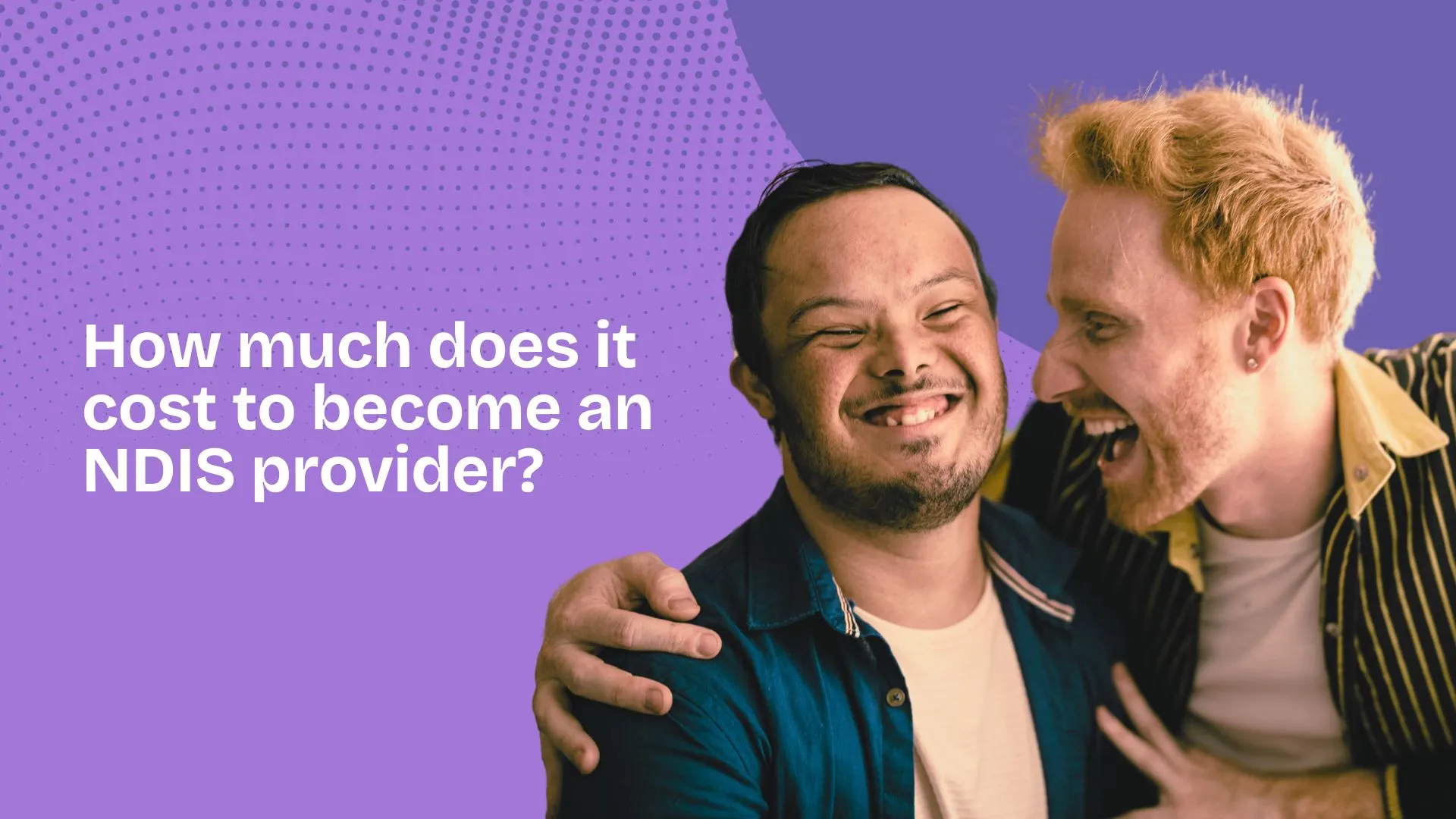Let’s explore the various costs involved in starting an NDIS business, so you can plan effectively for success.
Starting an NDIS business can be a rewarding but complex process. It involves meeting registration requirements, complying with standards, and considering various financial factors.
The first step is applying with the NDIS Quality and Safeguards Commission, which is free. However, providers are required to undergo an NDIS Audit based on the relevant NDIS Practice Standards, which comes at a cost. Additionally, there are other important expenses to consider while establishing your NDIS provider business.
Understanding NDIS Provider Registration
Before delving into the costs, it’s essential to grasp the significance of NDIS provider registration. The NDIS is a national initiative designed to support individuals with disabilities, ensuring they have access to necessary services and supports.
Providers play a crucial role in delivering these services, and registration signifies a commitment to maintaining high standards of quality and safety.
Why Register as an NDIS Provider?
Registration as an NDIS provider offers several advantages:
- Access to a Broader Client Base: Registered providers can offer services to participants with NDIA-managed plans, expanding their potential clientele.
- Enhanced Credibility: Registration serves as a mark of quality and compliance, building trust with participants and their families.
- Opportunities for Growth: Being a registered provider opens opportunities and collaborations within the disability sector.
Download: Registration requirements by supports and services (PDF)
What are the key costs involved in starting an NDIS business?
Auditing costs for NDIS registration: NDIS verification or certification audit costs.
Lawyer/Accountant Service Fees: If you need help from a lawyer or accountant to prepare documents and register your company with ASIC.
Company Registration: ASIC registration fee (from $474 – $576, depending on the type of company you register.)
Insurance and risk management: Insurance such as public liability, professional indemnity, workers’ compensation, and more.
Administration and Overheads: Office supplies, software tools, vehicles, rents, utilities, and general operating costs.
Related: How long does it take to become an NDIS provider?
How much does it actually cost to become an NDIS provider?
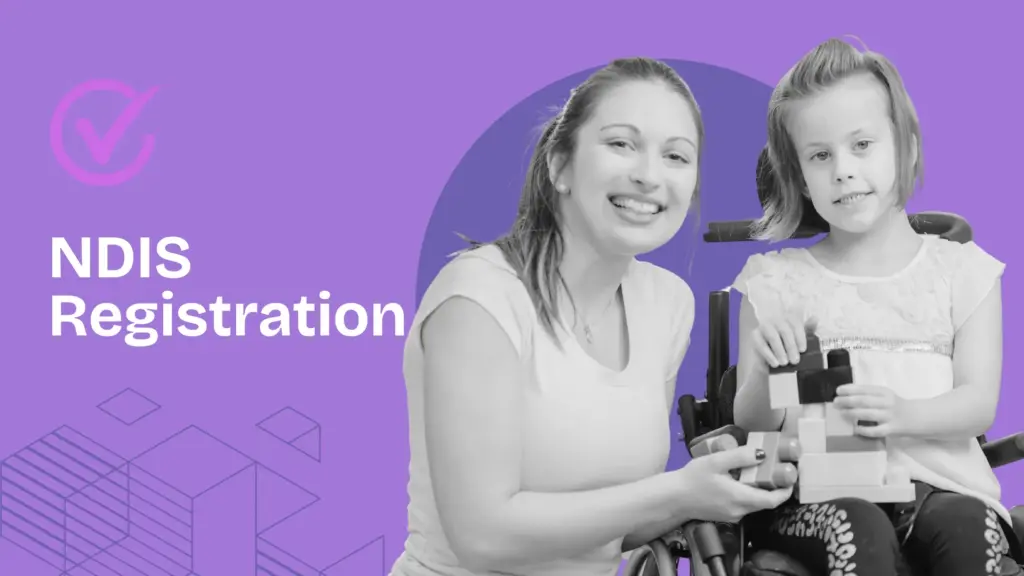
You can become an NDIS provider starting from $10,000 depending on various factors. However, if you’re looking to build a successful NDIS business, you need to have a good budget for marketing as well.
Initial company registration and setup cost
- Company Registration: Registering your business with the Australian Securities and Investments Commission (ASIC) incurs a fee. As of the latest data, the cost is up to $576.
- Professional Services: Engaging legal or accounting professionals to assist with business setup and compliance can cost between $500 to $1,500, depending on the complexity and the service provider.
NDIS Registration Application Costs
While the NDIS registration application itself is free, preparing the necessary documentation requires investment.
- NDIS Policy & Procedure Documents: Writing policies aligned with NDIS Practice Standards can cost $2,000 – $4,000 (or more if hiring a consultant).
- Consultant Fees: If you hire an NDIS consultant, fees range from $2,000 – $10,000, depending on the level of assistance.
Audit Costs
Audits are mandatory for NDIS registration. The cost depends on whether you need a Verification Audit (for low-risk providers) or a Certification Audit (for high-risk providers).
Verification Audit (for Sole Traders & Low-Risk Providers)
- Cost: $900 – $2,500
- Applies to: Providers delivering lower-risk services such as therapy or home modifications.
Certification Audit (for Medium to High-Risk Providers)
- Cost: $3,000 – $10,000+
- Applies to: Providers offering personal care, nursing, or high-risk services.
- Requires on-site assessments and a Stage 1 & Stage 2 audit process.
Insurance and risk management
NDIS providers must have adequate insurance coverage before starting operations. The main types include:
| Insurance Type | Estimated Cost (AUD) |
|---|---|
| Public Liability Insurance | $600 – $2,000 per year |
| Professional Indemnity Insurance | $800 – $3,000 per year |
| Workers’ Compensation Insurance | Varies based on staff size |
| Cybersecurity Insurance (if handling sensitive data) | $500 – $2,500 per year |
Office Space, Utilities, Vehicle & Others
-
If you operate from a physical location, monthly costs can be $2,000 or more depending on rent, utilities and insurance.
-
Office space may not be required if you are starting small or offer mobile services. However, you still need to provide a physical address to ASIC to register your company.
Software & Systems
NDIS businesses often invest in technology to manage clients, invoices, and scheduling. Choosing the right software can streamline operations and reduce admin costs in the long run.
| Software Type | Estimated Cost (AUD) |
|---|---|
| NDIS Client Management Software | $50 – $500 per month |
| Accounting Software (Xero, MYOB, etc.) | $30 – $100 per month |
| Telehealth/Video Consultation Software | $50 – $200 per month |
Note: The actual cost may vary depending on various factors.
How many audit types exist in the NDIS process?
1. Certification Audit
Focus: Higher-risk and complex services.
Requirements: Providers offering such services must meet core and supplementary module requirements.
Process: Includes document reviews, site visits, and interviews with NDIS workers and participants.
Goal: Ensure providers deliver supports in line with NDIS Practice Standards.
2. Verification Audit
Focus: Lower-risk and less complex services.
Requirements: Providers in this category undergo a desktop review of evidence.
Process: Primarily a review of documentation without on-site visits.
Goal: Confirm providers offering lower-risk services meet NDIS standards effectively.
How much does it cost for NDIS verification audit?
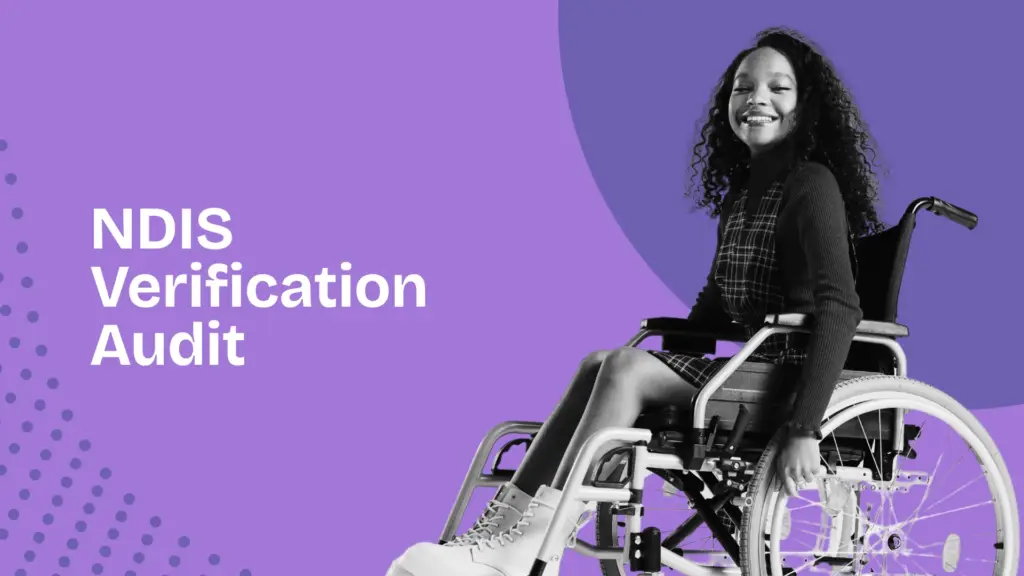
Providers delivering lower-risk, less complex supports and services like accommodation assistance or assistive products will undergo a Verification audit.
Low-risk and less complex services
- Accommodation/tenancy assistance
- Assistive products for personal care and safety
- Personal mobility equipment
- Assistance with travel/transport arrangements
- Vehicle modifications
- Home modifications
- Assistive equipment for recreation
- Vision equipment
- Community nursing care
- Innovative community participation
- Specialised hearing services
- Household tasks
- Interpreting and translation
- Hearing equipment
- Assistive products in household tasks
- Communication and information equipment
- Exercise physiology and personal training
- Management of funding for supports in participant plans
- Therapeutic supports
- Specialised driver training
- Assistance animals
- Hearing Services
- Customised prosthetics
The cost for NDIS certification audits ranges from $900 to $1500. This is an off-site audit.
How much does it cost for NDIS certification audit?
Providers offering higher-risk, more complex supports such as specialist behaviour support or early childhood services will need to undergo a Certification audit.
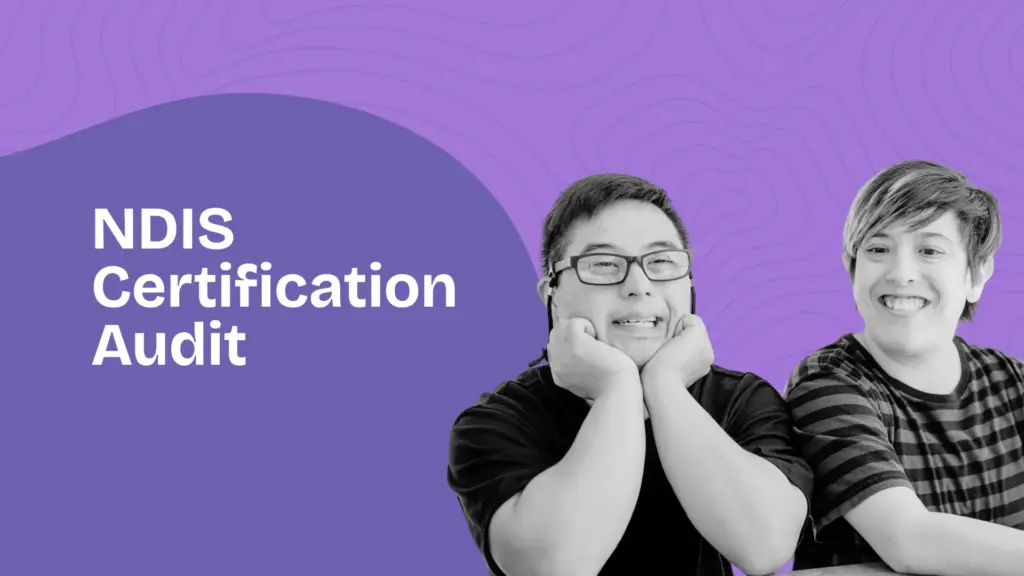
High-risk and more complex services
- Assistance to access and maintain employment or higher education
- High intensity daily personal activities
- Assistance in coordinating or managing life stages, transitions and supports
- Assistance with daily personal activities
- Specialist positive behaviour support
- Assistance with daily life tasks in a group or shared living arrangement
- Development of daily care and life skills
- Early intervention supports for early childhood
- Participation in community, social and civic activities
- Specialist disability accommodation only
- Specialist disability accommodation and one or more other registration classes/groups
- Specialised support coordination
- Specialised supported employment
- Group and centre-based activities
The cost for NDIS verification audits ranges from $3000 to $5000. This is an on-site audit.
Note: Once registered, NDIS providers must maintain compliance and undergo periodic audits. Every 3-5 years, registration renewal incurs similar audit costs ($1,000 – $10,000 depending on provider type).
Is NDIS registration mandatory to offer services to NDIS participants?
NDIS registration is not mandatory for providers to offer services to NDIS participants with self-managed or plan-managed funds. However, unregistered providers are also required to meet the NDIS quality and safeguarding standards, even though they are not officially registered with the NDIS Commission.
- NDIS registration is only required for providers serving NDIS participants with plans managed by the National Disability Insurance Agency (NDIA).
- NDIS participants who self-manage their plans or have plan-managed funds can choose to use both registered and unregistered providers.
- Unregistered providers serving self-managed or plan-managed NDIS participants must still comply with the relevant NDIS Practice Standards and quality requirements, even without official NDIS registration.
- The NDIS Commission has oversight over the quality of supports and services delivered to all NDIS participants, regardless of whether their provider is registered or not.
How much marketing budget do I need to grow my NDIS business?
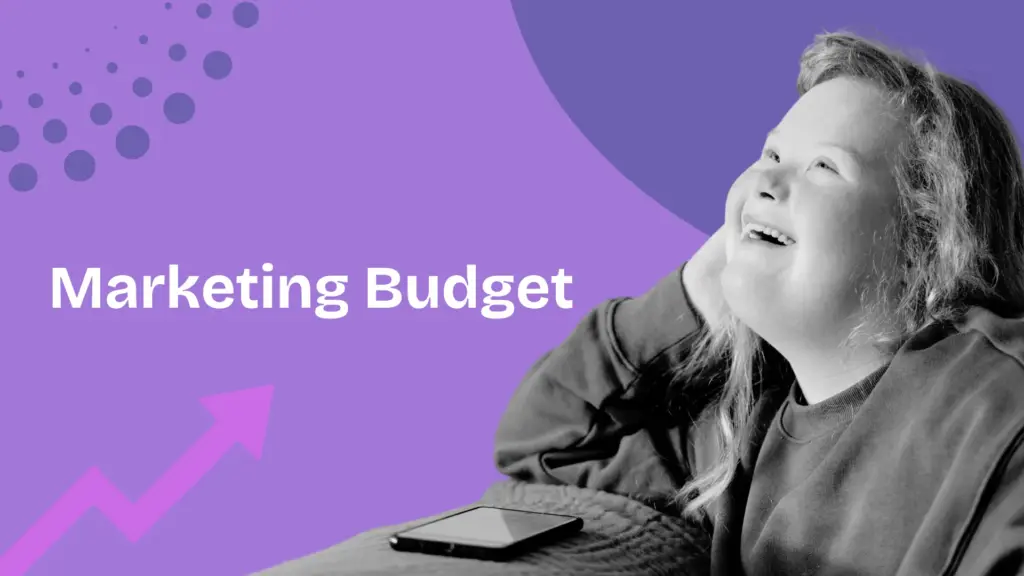
Australia’s disability support sector is very competitive. There are over 40,000 registered providers and many more unregistered ones. This means you’ll need a strong marketing budget to grow your NDIS business.
Below is the estimated marketing budget providers typically need to invest in order to grow a profitable NDIS business.
| Marketing Strategy | Estimated Cost (AUD) |
|---|---|
| Professional Website Design | From $2500 |
| SEO | From $750 a month |
| Business Cards & Brochures | From $500 |
| Google Ads/ Facebook Ads | From $2,000 a month |
Becoming an NDIS provider is a great opportunity—but simply registering won’t guarantee you clients. While that might have worked in 2017, today’s market is very competitive.
Here are some simple tips to help your business stand out online:
- Professional Website: Your website should be attractive, easy to use, and optimised for search engines (SEO) and conversions.
- Avoid Basic Designs: A basic 5-page website may be cheaper, but it won’t support your business growth in the long run.
- Invest in SEO: Start with a solid SEO strategy so that potential clients and coordinators can easily find your services.
- Targeted Marketing: Identify gaps in the market and use the right marketing channels to promote your NDIS services.
Related: How to get NDIS clients: a comprehensive guide for providers
Final Thoughts
Becoming an NDIS provider involves a range of initial and ongoing expenses. By understanding these costs and implementing effective management strategies, you can establish a sustainable and successful business that delivers essential services to individuals with disabilities.
